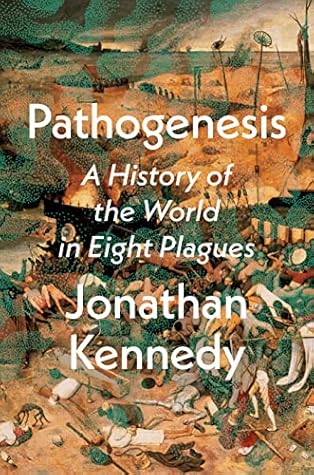More on this book
Community
Kindle Notes & Highlights
Read between
May 12 - May 25, 2025
If we trace the Tree of Life to the base of its trunk, we find the Last Universal Common Ancestor (LUCA): a single-celled, bacterium-like organism that is the distant progenitor of all living things, humans included. This
There are about 8.7 million species of animals, plants and fungi on earth,[6] compared to an estimated 1 trillion—1 million million—types of bacteria and archaea.[7] Less than 0.001 percent of all species on the planet are eukaryotes.
It’s no exaggeration to say that bacteria have made the planet habitable for complex life, including humans. It’s a bacterial world, and we’re just squatting here.
Grace Epstein liked this
A retrovirus is a specific type of virus that reproduces by inserting a copy of its DNA into the genome of the host cell.
If one of our distant ancestors hadn’t been infected by a virus hundreds of millions of years ago, humans would reproduce by laying eggs.
infectious diseases have killed so many people throughout history that they are one of the strongest forces shaping human evolution.
It is therefore not the strongest or most intelligent members of our species who were most likely to survive long enough to pass on their DNA to the next generation; rather, it was humans who had the most effective immune system to cope with the onslaught of infectious diseases, or those who had mutations that made their cells unusable to microbes. Lots of these mutations not only conferred resistance to pathogens but also had a negative impact on cell function. This suggests that humans’ struggle for existence was a fight against microbes rather than alpha males and apex predators.
The evolutionary reason why bacteria produce chemicals that improve our moods may be that it makes us more likely to be gregarious and therefore provide them with opportunities to colonize other hosts.
plethora of recent discoveries point to the fact that Homo sapiens weren’t, in fact, smarter than other species of human.
Antonine and Cyprianic Plagues,
Although John McNeill is careful not to completely ignore the role of Great Men like George Washington, he drolly suggests that the female Anopheles quadrimaculatus mosquitoes should be considered one of the “founding mothers of the United States.” As he points out, malaria killed eight times more British troops than American guns.
more than a century and a half after the abolition of slavery, there remains a long way to go until African Americans have the same rights to life, liberty and the pursuit of happiness as their white compatriots.
new urban working classes lived in large, crowded cities and worked in vast factories where coal-fired machinery churned out acrid smoke and goods to be transported across the world by steam-powered trains and ships.
it must have seemed inconceivable that a rebooted version of the free-market economic liberalism of the previous century would soon return to prominence. But by the start of the next decade, it was very much back on the domestic and international policy agenda. And once again it would have devastating and often deadly consequences on health—both in high-income countries like the U.S. and the UK and in the world’s poorest nations.
life is painful, death is certain, and modern medicine hasn’t altered this fundamental reality.[*1]
Enlightenment has put some lucky people on what seems like a “perpetual path of progress,” but much of the world’s population lives in what must feel more like a dystopia.
when we place coronavirus in its historical and scientific context, it becomes very clear that there is little about it that is new or remarkable.
Covid-19 pandemic has highlighted many of the problems that blight modern society. It is now up to us to seize the opportunity to address these iniquities and to build a happier and healthier world.


